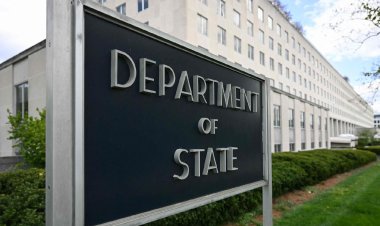US misuse of national emergency powers damages its own interests and the global community
In this article, Ding Ru, an associate professor at China University of Political Science and Law, critiques the use of unilateral tariffs under the pretext of national emergency powers. He argues that this strategy is both reckless and short-sighted, warning that it will lead to greater isolation for the US in the global arena.

On February 1, the administration of US President Donald Trump announced new tariffs on China and other countries, citing concerns related to fentanyl.
This action represents a political maneuver that misuses national emergency powers via tariff increases.
Such tactics are harmful not only to the US but to the global economy as well, and they are likely to result in negative consequences both domestically and internationally.
On February 2, a spokesperson for China's Ministry of Commerce remarked that the US's unilateral imposition of tariffs seriously violates World Trade Organization rules.
This action does not resolve any domestic issues in the US and instead undermines economic and trade relations between China and the US.
The Trump administration's misuse of emergency powers jeopardizes fundamental American interests.
The executive orders issued by the Trump administration lack legitimate intent and reasonable justification.
Primarily, these measures aim to circumvent the US Congress and unilaterally enact protectionist policies for political gain.
Domestically, there has been pushback from congressional members.
Gregory W. Meeks, a ranking member of the House Foreign Affairs Committee, criticized the administration's use of the International Emergency Economic Powers Act to bypass congressional committee oversight.
Moreover, invoking national emergency powers necessitates a credible rationale, indicating that the actions taken should effectively address the designated issue.
However, the Trump administration's tariffs do not contribute to combating the fentanyl crisis and lack valid grounds for such an emergency declaration.
The widespread drug issue in the US mainly arises from systemic faults and administrative negligence.
Instead of dealing with these internal challenges, the Trump administration has deflected accountability, blaming other countries and imposing tariffs under the guise of a national emergency.
Turning foreign nations into scapegoats for domestic problems is simply a guise for protectionist trade policies.
This externalized strategy is ineffective in addressing the US’s internal issues.
The reckless misuse of national emergency powers by the Trump administration will only further diminish congressional authority and continue to harm the nation’s fundamental interests.
Increased tariffs negatively impact US consumers and workers.
The Trump administration's tariff policies will lead to higher prices for American consumers.
High tariffs translate to increased costs and subsequently higher prices.
Various US industries, including manufacturing and agriculture, depend on imported raw materials and components from partners like China.
Introducing additional tariffs will significantly raise production costs in these sectors, which will eventually be passed on to consumers.
Consumers are also workers. Average US consumers and workers will encounter higher living expenses, fewer product options, a restricted international market, and limited job opportunities.
Unilateral tariff increases contravene international trade regulations and erode the foundations of global cooperation.
The Trump administration misuses national emergency powers under the pretext of fighting fentanyl, imposing discriminatory, unilateral, and arbitrary tariffs.
These actions not only breach WTO rules but also severely compromise the reputation of the US in the global arena.
It is widely understood that tackling the fentanyl crisis demands international collaboration, and the US strategy of shifting blame accomplishes nothing in resolving the matter.
On the contrary, it undermines the very basis of international cooperation.
The Trump administration's tactics are set to weaken the US's position in global anti-drug initiatives, and may incite resentment and resistance to its unilateral policies.
Canada and Mexico have already announced their own countermeasures in response to the US tariff increases.
On February 4, a spokesperson for China's Ministry of Commerce indicated that China has lodged a WTO dispute complaint against the US tariffs to uphold its legitimate rights and interests.
Cooperation is essential for addressing worldwide challenges.
If the Trump administration genuinely aims to tackle the fentanyl crisis in the US, it must first confront its internal failings, bolster domestic regulatory frameworks, and engage in international collaboration with China and other countries.
By striving for an effective global anti-drug cooperative framework, the US can fulfill its responsibilities as a leading power and contribute to the collective advancement of humanity.
Resorting to unilateral tariffs through an abuse of national emergency powers is a reckless and shortsighted strategy—one that will ultimately lead to greater isolation for the US on the international stage.
Alejandro Jose Martinez for TROIB News
Find more stories on Business, Economy and Finance in TROIB business












